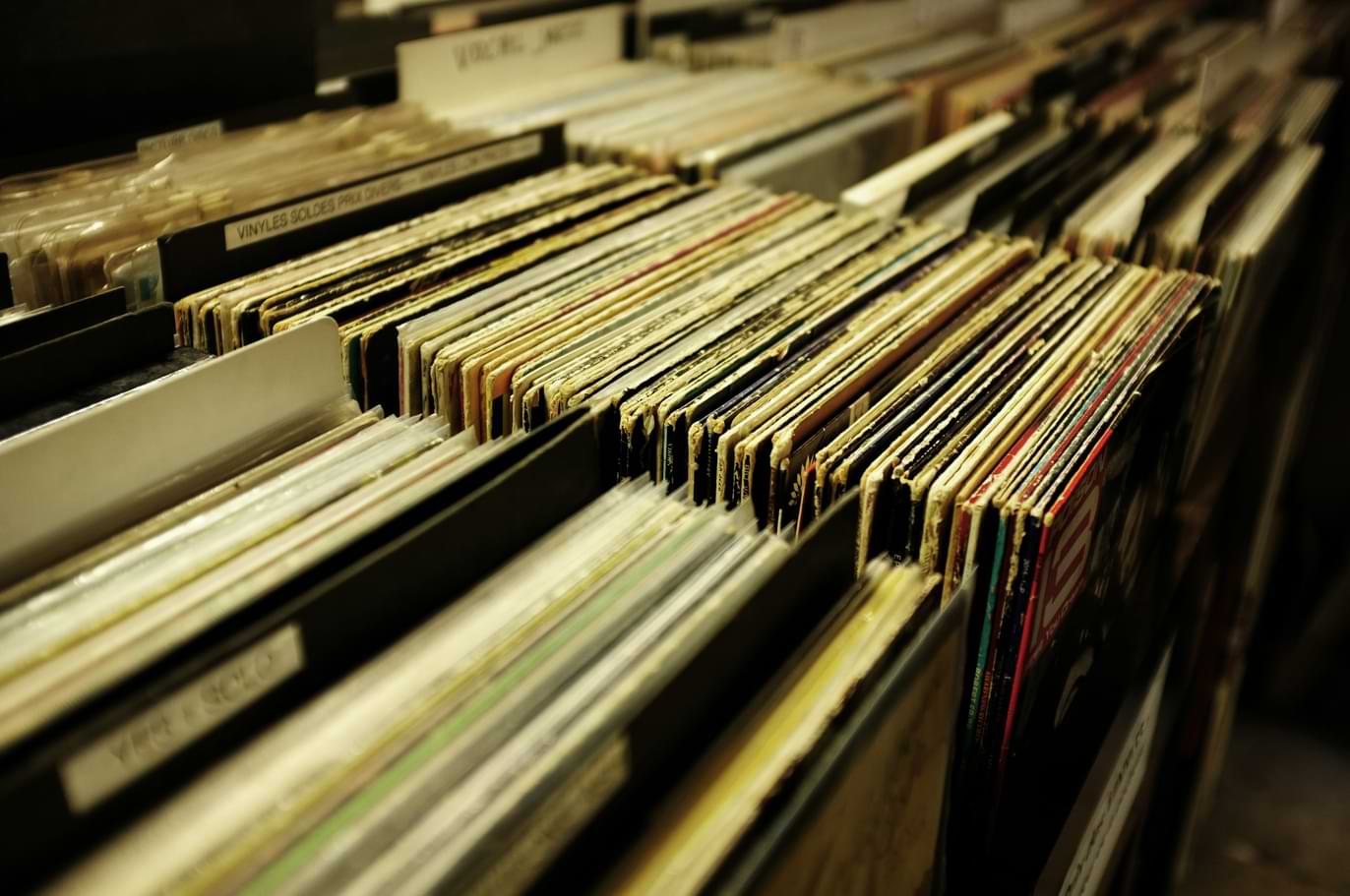
Tutorial
Personal Data Management for the Uninitiated - Part 1
featured image: Personal Files & Folder Management. Image by Mr Cup / Fabien Barral on Unsplash
Why do we need to file & archive Documents?
From birth to death, there are some documents that we have to keep safe. These documents are important because they help us access certain facilities, establish our identity to the authorities or prove our property ownership. We have to keep them safe to avoid unnecessary delay or paperwork when providing supporting documents. Most of us don't realize their importance, and we have them piling up without proper organization in a file cabinet or a computer folder (if digital). With better organizing, we can easily access any document in any circumstance without any hustle of shuffling through all the files we have accumulated over the years. And, that is why we need to manage personal documents & credentials.
Important Documents & Credentials
Let's look at the most important types of documents almost everyone has and how one should keep them organized.
Essentials
Essential documents include election card, ration card, driver's license, passport, PAN card, birth certificate & other professional IDs. You can, sometimes, also have a Caste & Income certificate for students & job seekers. Along with these personal IDs, you have to maintain biodata of yourself. It includes your blood group, work resume, passport size photos, digital signature etc. These might come in handy when applying for an exam or a job more often than not.
Essential documents mentioned above define almost every service or facility you can access from any institution (govt. or non-govt.) in your country.
Note: These documents are based on the requirements for an average person in India.
Academics
We need academic documents when we apply for higher studies, competitive exams or jobs etc. Though you don't necessarily need documents from all of your classes, it's better to classify your academics into few sections and save all the related documents in their respective section.
- 🧒🏽 Primary school
- 🏫 High school
- 🎒 +2 (PUC)
- 🏛️ Undergraduate Degree
- 🏛️ Separate sections for Graduate & Post-graduate Degree - if exists
- 📜 Entrance Exams
- 🎓 Applications for Higher Studies (MS, MBA etc.)
- 📡 Online Courses
- 🕺🏼 Extracurricular
For each of the section, by default, you'll have mark sheets, certificates. And, in some cases hall tickets, and other documents can also exist.
Banking & Loans
From having to keep every single bank passbook, and annual statement letter from the Bank in a safe to digitised ways of debit & credit cards, e-statements, net banking, and virtually being able to query balance from anywhere, banking has changed. It's easy to get and keep your banking documents safely. Some of the documents you need for banking include,
- 🏦 Details of your bank accounts, type, their holding capacities & nomination details
- 🏧 Details of Debit & Credit cards
- ✍🏼 Chequebooks - It's a good practice to keep a copy of written checks.
- 🔑 Login details of internet banking - Don't share or store your passwords accessible to others.
- 🔐 Details of locker facility & an inventory of things at the locker (if you have)
- 💰 Bank loan details & corresponding documents (with copies of mortgage docs) - (if exists)
Sometimes, it is also possible a person may have taken loans or invested in non-financial institutions. It may be from family, a friend or other contacts. Also, it might happen that you have received valuables from generations like jewellery, antique pieces etc., that are off-the-books & stored in private lockers. It helps to have information stored on such assets/liabilities.
Expenses/Ledger
We all make expenses, sometimes, that needs tracking. It helps identify our expenditure and balance between the income & expenses we occur in a month by maintaining a budget. For many, it may seem unnecessary to track your expenses 📒 and keep an accounting record. But, it helps you become more aware of your spending while also keeping you safe when you finally file for income tax returns. Keeping track of expenses also helps identify fraud deductions from your bank accounts earlier, which may need quick addressing.
If you want to make investments, save money or get tax exemptions from income tax, you need to understand your money flow. You can do this by tracking where your money is coming from and where you are spending the most. And, also you need to understand how much money you can save in a financial year and use it for investing in different sources. Keeping a ledger with the balance of income & expenses helps you do exactly that.
IT Returns
I can't stress enough how important tax-related documents are. As I mentioned above, you make tax-saving investments throughout the financial year to claim tax deductions & exemptions. And when you file for Income tax returns (ITR), you have to keep certain documents associated with it so that you can always refer to them in case of discrepancies with your tax returns.
- ☑️ Acknowledgements
- 🗒️ Bank Statements
- 📄 Form 16
- 📃 Form 26AS
- 🧧 Documents for proving applicable tax exemptions & deductions
Note: These documents are based on the requirements for an average person in India.
Insurance
In my opinion, every adult should have insurance. Health insurance helps you navigate through treatment expenditure when you get sick without the burden of arranging money. While term insurance helps ensure your loved ones are taken care of in adverse situations, like your death. It offers you peace of mind. But, you need to make sure they know about your insurance and the procedure of claiming the insurance is an easy process by keeping these documents organized.
It's important to keep all the insurance policies, claim related forms & contacts and other relevant details. For each insurance policy, you need to maintain these documents in general.
- 📃 policy clause, description and available facilities document
- 🗓️ policy schedule, amount, nomination details & identification card
- 👍🏼 policy endorsement document (if applicable)
- 🧾 premium receipt & certificate for claiming tax exemptions
- 📄 claim forms
- ☎️ point of contact person and phone number from the insurance company
- 📱 Insurer contact details
Investment
The best way to make use of your money savings is to invest them. It was common in the past to have the money saved at home or in a savings bank account. People mostly invested in purchasing land, gold or fixed deposits back in the day. Stocks, mutual funds etc., were far from the reach of the common people. But today, anyone can easily make investments in equity, mutual funds, PPF, or even cryptocurrencies. Because of the online trading platforms, there's more awareness around how one can invest money while taking fewer risks.
All these investments have their own set of documents which you need to file properly in your archive. It also helps to keep them in few specific sections like below;
- 🏘️ Property related documents - ownership, payment receipts etc.
- 💎 Fixed/recurring deposits, Gold, Commodities & Bonds etc.
- 💹 Stocks (equity), Mutual funds, ELSS - with related paperwork & nomination details.
- 💸 PPF, Retirement plans, Savings for Children's education, Insurance Annuities etc.
- 🪙 Cryptocurrencies
Legals
More often than not, we don't take any interest in organizing our legal paperwork. And when you are in trouble, it's usually too late to start the paperwork and get it notarized. Everyone needs to have some of the important legal documents ready and organized well. Also, it's essential to share the knowledge of these documents with your family members.
- ✍🏼 Will - known as the last will. Every adult should have a personal 'will'. It helps you carry out your wishes & distribute your wealth and assets after your death. It is also vital in deciding any guardians for your children if they are minor.
- ✍🏼 The living will - this 'will' is an advance directive used to tell doctors, medical professionals or family your wishes regarding the treatments you receive. This 'will' becomes applicable when you are sick and can't speak for yourself.
- 👨🏻⚕️ Durable Health Care Power of Attorney - The above will might help in some scenarios where you have created a checklist of treatments that you may wish or not wish to get. But in many cases, it's hard for any checklist to be comprehensive. In such cases, it becomes essential to have a durable healthcare power of attorney. It allows any person of your choice to act as your proxy to take all the treatment-related decisions on your behalf if you are unable to do it yourself.
- 💵 Durable Financial Power of Attorney - Like a health care proxy, you can assign a person of your wish the durable power of attorney. This person can make all the financial decisions like managing your finances, making investments, getting personal affairs in order etc.
- 🗞️ Other legal documents include:
- marriage certificate
- Rent/lease agreements
- Employment or Non-compete agreements
- Divorce, child/pet custody agreements, prenuptial/postnuptial agreements
- Affidavits
Medical
Keeping all the medical reports from the past is very much important. We all go through several treatments when we are sick. And we accumulate many documents relating to medical procedures, allergies, surgeries, reports of scans etc. When we are rushed to the hospital with an emergency, and the doctors don't have any first-hand report yet, Our medical history helps doctors to make an informed decision.
Also, we usually prepare our diet, health & fitness routines around our medical history. It becomes essential to understand what kind of foods you can take & which ones to avoid. The trainers can, based on your health conditions, suggest more suitable and less risky exercises.
Medical documents you need to keep;
- 🤕 Reports of past illnesses, injuries, fractures or accidents - which includes scan reports like x-rays, MRI, CT scans, ultrasound etc.
- 🫀 Reports of medical procedures, surgeries, allergies (if any)
- 🦿 Reports of permanent illness or disability (if any)
- 👁 Documents of organ donation enroll (if any)
- 🥗 Diet & Fitness routine plans to follow (if any)
Family doctors have a good understanding of your medical history. And, they can make quick decisions at the time of emergency based on your history. Always keep the contact numbers of your family doctor ready. It's better to share their contact details with a couple of friends, family & relatives.
Work & Career
If you are working, you have to maintain few necessary documents from the start of your employment until you leave the job. These documents help legitimize your work history, manage your finances & taxes etc. Even for businesses, files act as proof of records for all the official activities undertaken.
Here, we look at the documents an individual on a job has to maintain;
- 🧑🏽💻 Job description - It gives a clear idea of the roles on the job to both the business & the employee. It lists out the obligations and duties related to the role.
- 📑 Employment contract - This is proof of the professional relationship between the employee & the employer. This document explicitly mentions the clauses concerning job functions, the confidentiality of the work, restrictions, and the terms of termination.
- 📃 Recruitment Process Documents - offer letter, appointment letter, onboarding checklist etc.
- 📓 Employee Handbook, Performance Appraisal Letter
- 📝 Employee compensation documents like salary structure, bonus, increment, TDS calculations, Salary slips & ITR declaration
- 📜 Exit process documents - When you leave a company, you need to maintain files related to formalities of leaving the company, such as Relieving letter, Clearance form, Experience letters, Full & Final settlement.
Online / Digital Accounts
Nowadays, every service we think of is on the internet. We use our email and other online accounts everywhere, from the simple chatting service to managing bank communications and investments on trading platforms. Anyone gaining access to your email can virtually access every service (financial or social media) you use. So, it's essential to keep your online accounts and their login information. Some of the online information include;
- 📧 Login information to all your email & social media accounts
- 👨🏽💻 Software licenses you have purchased
- 💻 Online subscriptions & services
- 💳 Details of all the accounts used for payments online
Shelf / Asset Management
Keeping track of all the assets/things you own come in handy in times of adverse situations. It can be a lifesaver if you end up in a situation where you need to replace your stuff due to loss, natural disaster or fire. Or when you have to make insurance claims for the building, an inventory of your things can make your process much easier. Few details to include for your assets;
- 📦 What's the asset name?
- Where is it?
- What's their value?
- When was it purchased or built? (save an invoice if possible)
- Life expectancy
- Frequency of services, maintenance (if required) - set levels of service to avoid huge costs when they finally break
- Manual of the asset (if available) - Helps in case of repairs, troubleshooting
Apps like home inventory can help you track your assets very effectively. And, you can track your assets by adding photos, sort by locations (like room, house, city etc.,) and even store the content backed up on the cloud.
There are several legal documents apart from what's mentioned here. If you want more information on different kinds of legal documents and a sample template, refer to this link.
How to Store these documents Securely?
Physical Files
Of course, we all have the necessary documents in paper form. But we usually have a single file cabinet or a folder 🗃 where we dump all our documents without any order. And, we don't care much as to where these files & folders are stored. We have to make sure the documents are categorized, tagged & put in their respective section folders. It's better to have a secure vault for sensitive documents, or you could go with a multi-drawer file cabinet for the organization.
Always keep a separate 'inbox' folder 📥 to keep the bills, mails, notices and other documents that you may get periodically. And assign specific days to go through the files and process them into your main file cabinet.
Digital Files & Folders
It's always better to go paperless. Reduce the clutter of using papers unless it's required as a physical file. Digitize all your essential documents by scanning them and store them either in pdf or jpeg formats. PDFs are usually better. By going digital, you don't have to carry a big file or folder in your backpack if you need to take them out. You can have them backed up in the cloud so you can access them from anywhere. Unlike physical files, it is easy to search them based on filenames, tags, categories or even the text inside the pdf files.
Once you digitize your files, you need to follow a folder structure. A proper folder structure (based on the categories we discussed earlier) helps you navigate files on your computer without any hustles. Here's an example below.

It's not possible to move every file into their respective folder as you generate them. Like a physical inbox, you can have an 'INBOX' 📥 folder that you can use to store all the files generated and organize them once a week. Also, it's better to name your files specifically after what they are about. It helps you avoid opening the file every time to check the content. You can give the files' names based on date, type of document, and the company or organization it represents. For example, if you have an electricity bill for March 2021, you can save the file as [il]'2021-03 - XYZ Distributor - Electricity Bill.pdf'[/il]. Since you are using the date initially (use YYYY-MM-DD), it's easier to sort the files by date.
Enpass Password Manager
Also, It's essential to make sure the files are secure and not accessible by anyone else. While you are storing the documents in pdf formats, don't write down your login credentials & passwords in a text file. Instead, use a password manager to store all your account passwords.
There are several applications in the market with many features. But, Enpass Password Manager doubles as the document manager as well. It helps you manage both your personal documents & credentials. You can use different tags & categories, as I mentioned above. It also can store attachments like pdf & jpeg, which is handy. You can have 2-factor authentication for your digital accounts through its TOTP feature. And your vault is secure with encryption based on your master password. You can also enable fingerprint or face id security on your devices.

Enpass also gives you the option to have multiple vaults. You can create multiple vaults for personal, work & family uses. The desktop version of the app is free to use. But, if you want to use it on your phone, there's a one-time purchase option for lifetime license & upgrades. Being open-source software, it offers the best in class security. Password audits, password generator, and keyfile add an extra layer of security to your files. On top of it all, the data is stored on your local or cloud storage of your choice. Read about all the features here.
Conclusion
We are usually under the impression that these documents are not necessary, and we can live without these documents. But, for your financial security and to make sure your family are taken care of, should anything happen to you, these documents you kept can make your and your family's life easier. You might find it hard to begin organizing your files. But, once you plan out and set up a system for filing documents, everything else is a smooth process. You can add another layer of security & backup when something goes wrong if you use both physical & digital methods to manage your personal documents & credentials.
I hope this article helped you to look at personal data management as essential for everyone. I’d be happy to receive any suggestions to improve this further. Comment your thoughts below.
If you liked this blog, like & subscribe to the blog and get notified about future blog posts. You can find me on LinkedIn, Twitter for any queries or discussions. Check out my previous blog on Why you need to use geopackage files instead of shapefile & geojson here.
Read other posts: How to use QGIS spatial algorithms with python scripts?, How Alternative Data is helping the companies invest Big?
Do you like our stuff? Subscribe now.
You may also like























